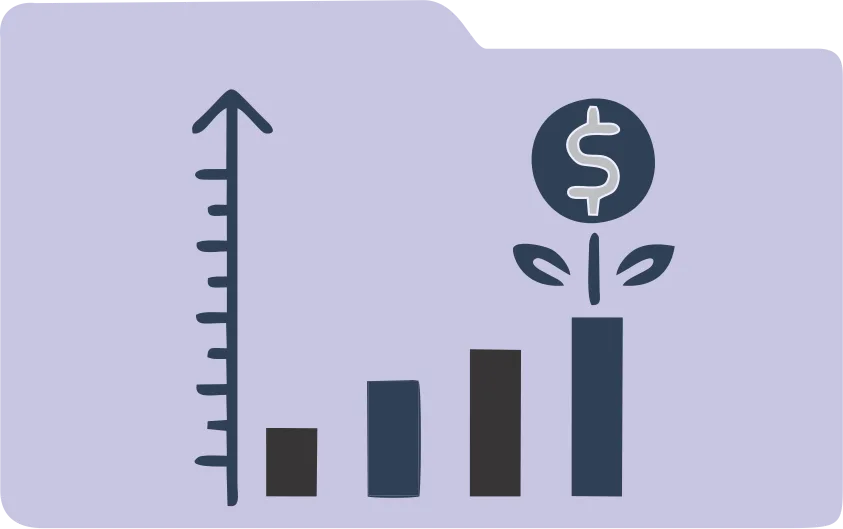A stock broker is a regulated broker, stockbroker, or investment adviser registered in the United States who may provide financial advisory and investment management services and execute transactions such as the purchase or sale of shares and other financial instruments to financial market participants in exchange for a commission, surcharge, or fee, which could be based on a fixed fee, a percentage of assets, or an hourly rate. The term also refers to financial companies that offer such services.
Opening a stock brokerage account is a great way to invest in the stock market. By opening a stockbroker account, you gain access to the tools, research, and resources necessary to make informed and responsible decisions about the stocks you buy and sell.
Stockbroker accounts also provide a wide variety of services, from market advice and analysis to retirement planning and investment consulting.
They may also offer advice on portfolio diversification and risk management. Although not all accounts offer an advisory service, you can always optionally apply to have a professional on board who can help guide your decisions, this can reduce the level of risk you take when participating in stock market activities as well. It also helps you to obtain the necessary knowledge for future operations.
Among some of the services they offer, you will find research tools and resources, as well as historical data by company, real-time price quotes, latest news, industry trends, and tools for technical analysis of each financial instrument, to help you make informed decisions when investing in the stock market.
Many institutional investors, such as hedge funds and mutual funds, require you to have a brokerage account before they will even consider granting you access to certain investments. Having a brokerage account also allows you to easily transfer funds between investments as needed, as well as access lower commissions and fees.
A good stock broker should offer a variety of account types to suit a variety of investor needs.
This can include individual, joint, corporate, trust, custodial, and IRA accounts. Some of the most popular accounts that offer a great stock trading experience include margin accounts, which offer leverage to buy more shares, as well as retirement accounts, such as IRAs and 401(k)s, which are tax-advantaged accounts. Certain brokers may also offer specialized accounts, such as options accounts, or accounts that offer access to different markets or asset classes, such as commodities, currencies, or cryptocurrencies.
How to choose a good stock broker?
A reputable stock broker should be reputable, have a proven track record and offer a smooth and hassle-free overall experience, plus it is of the utmost importance that they are registered as a stockbroker in the U.S. Securities and Exchange Commission.
But of course, when it comes to choosing a good stock broker that suits your needs, there are five elements that you must take into account to avoid having headaches later, I leave them listed below:
1. Reputation: Investing in stocks or other financial instruments can be complicated and you don’t want to entrust your financial future to a stockbroker whose reputation is questionable. Do some research to make sure the broker you choose has a strong track record of managing portfolios and fulfilling client requests.
Consider word of mouth reviews, online ratings, and other resources to help gauge a business’s reputation.
2. Fees – Many stockbrokers charge service fees, commission fees, and other costs that can quickly eat away at your profits. Be sure to compare the rates of different brokers to find the one that gives you the best return for your money and for the number of transactions you think you will make. If you are just starting out and don’t have a lot of cash, there are some zero fee brokers you can consider.
3. Investment Options – Make sure the broker you’re considering offers the full range of asset classes and account types you’re looking for. This includes stocks, bonds, ETFs, mutual funds, options, commodities, cryptocurrencies, and account types for individuals, retirement, college, and more.
Some brokers may specialize in certain asset classes, so if you’re looking for a specific type of investment, make sure the broker can meet your needs.
4. Customer Service – When it comes to investing sometimes you need immediate answers, you want to make sure you are working with a broker that you can easily contact. Find out what kind of customer service the broker offers, including whether they can be reached by phone, email, online chat, or any other means. It is also important to make sure that the broker responds to your questions and requests in a timely manner.
5. Financial situation: Before deciding on a stockbroker, you should also verify that he is in good financial standing. The best way to do this is to research your filings with the SEC (U.S. Securities and Exchange) and look for red flags that may indicate potential money problems. A broker’s financial stability is critical to protecting your investments, so make sure they are in good standing before opening an account.
In the same way as you look for a good bank to open your savings account, you should also investigate before opening a broker account to make transactions in the stock market, it is important that you do this research yourself and find one that suits you. adapt to your particular needs, however below we leave you a list of the most popular brokers in the market with a brief review.
US Stock Brokers
E-trade
Etrade is one of the most popular online stock brokerage platforms. It provides a comprehensive set of trading tools, including live streaming quotes, research and analysis, advanced order types, and access to over 100 international markets. Etrade also offers online banking, retirement planning, margin trading, and more.
TD Ameritrade (Now Schwab)
TD Ameritrade is a great platform for beginner and advanced traders alike. Provides extensive research and educational material, live streaming quotes and market data, advanced charting tools, thinkorswim platform and access to over 100 international markets, and offers faster transfers between your bank account and broker account when you use TD Bank.
Robin Hood
Robinhood is popular among young people, as its mobile app is easy to use and understand, very simple, especially for beginners, it is a profitable trading platform that does not charge commissions. Along with free stock trading, Robinhood also provides easy access to options and cryptocurrencies. Other features include advanced order types, a convenient mobile app, watchlists, news feed, and more.
Charles Schwab
Charles Schwab is another great online broker platform. It offers low commissions, powerful tools and resources, extensive research, and access to more than 100 international markets. Other features include access to banking services, retirement planning, online support and more.
Fidelity
Fidelity is a leading online broker platform. It offers innovative trading tools, extensive research, real-time streaming quotes, low commissions, and access to international markets. Fidelity also offers a wide range of banking services, retirement plans and more.
Webull
Webull Corporation is a holding company incorporated in the Cayman Islands and headquartered in New York. Its subsidiaries operate an electronic trading platform, accessible via mobile app and desktop computer, offering commission-free and low-cost trading of stocks, exchange traded funds, options, margins, and cryptocurrencies.
Its U.S.-based subsidiary, Webull Financial LLC, is a security broker registered with the U.S. Securities and Exchange Commission and a member of FINRA and SIPC, offering trading services to customers in the U.S. It also has licensed subsidiaries offering trading services in Hong Kong and Singapore. Webull Corporation has received backing from private equity investors in the U.S., Europe and China.
Interactive Brokers
Interactive Brokers LLC (IB) is an American multinational brokerage firm. It operates the largest electronic trading platform in the U.S. by number of daily average revenue trades. The company brokers stocks, options, futures, EFPs, futures options, forex, bonds, funds, and some cryptocurrencies.
J.P. Morgan Self-Directed
J.P. Morgan Self-Directed Investing charges no commissions and offers a highly integrated app, which makes it a solid choice for individuals who want to trade their own investments, especially existing Chase customers.
Merrill Edge
Merrill Edge is an electronic trading platform provided by BofA Securities, part of Bank of America’s retail banking division. As an online brokerage, Merrill Edge offers a comprehensive platform with adequate technical and fundamental tools suitable for long-term investors and casual traders.















